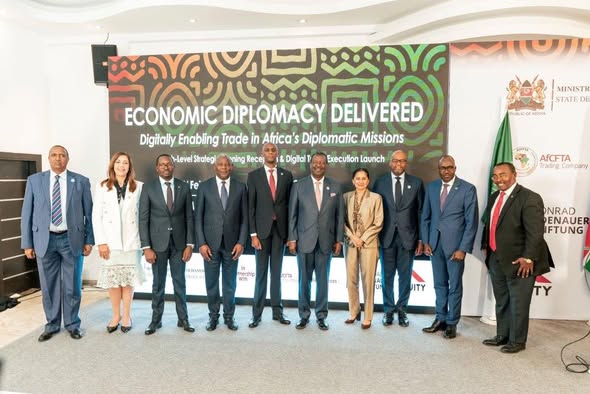RISK REDUCTION, AGILITY AND RESPONSIVENESS IN THE SPOTLIGHT AS SUPPLY CHAIN MANAGERS FROM AROUND THE WORLD MEET IN CAPE TOWN

(Picture) Nomsa Nteleko, chief commercial officer at Amathuba AI and speaker at the 2023 SAPICS Conference
–
Supply chain practitioners from across Africa and around the world will meet in Cape Town this week for the annual SAPICS Conference, Africa’s premier education, knowledge sharing and networking event for the profession.
Hosted by the Professional Body for Supply Chain Management (SAPICS), this year’s gathering is particularly significant in the wake of numerous events that have disrupted supply chains in recent years, including the COVID-19 pandemic, the blockage of the Suez Canal, riots and unrest in parts of South Africa and issues at the Port of Durban, the container shipping crisis, and the power crisis across Asia and Europe. This is according to SAPICS president MJ Schoemaker. “Today, there is more understanding than ever of supply chains and the importance of supply chain management. There is growing recognition of the fact that the supply chain is the backbone of almost every business. If it breaks, an organisation may never recover from the lost time, money and customers,” she states.
Schoemaker notes that war, raw materials shortages, rising energy costs and extreme weather conditions are just some of the factors that will continue to disrupt global supply chains in 2023, while in South Africa, the electricity crisis is challenging companies across all sectors. “Businesses must strive for optimised execution, risk reduction, and enhanced agility and responsiveness in their supply chains. Today’s supply chains must be able to anticipate disruptions and have tools in place to manage them,” she stresses.
Reflecting its mission to elevate, educate and empower the community of supply chain professionals across Africa, SAPICS has lined up leading local and international experts who will share their insights at the upcoming conference. “Our aim is to equip delegates with the skills, knowledge and tools to future proof their supply chains in an increasingly volatile, uncertain and complex environment,” Schoemaker says. To this end, sessions at the event will focus on topics ranging from artificial intelligence (AI) and drones to healthcare, skills development, sustainability, transport and warehousing.
AI is the focus of the 2023 SAPICS Conference presentation by Nomsa Nteleko, chief commercial officer at Amathuba AI. Her vision is to change people’s lives through AI technology, and she contends that embracing AI will “help to advance African humanity”. Automated inventory management powered by self-flying drones is on the 2023 SAPICS Conference programme in a presentation that will focus on pushing the boundaries of inventory management through innovation.
The event will unpack supply chain’s critical role in the global ESG imperative with compelling sessions focusing on fruit distribution and health supply chains. “Circular and sustainable supply chains must be on the agenda of all organisations aiming to future-proof their businesses,” asserts Schoemaker. The emissions impact of distributing goods such as fresh fruit is increasingly attracting attention due to the heightened awareness of greenhouse gas (GHG) emissions. An important carbon mapping framework and associated emission intensity factors that were developed for the South African fruit export sector to determine logistical emissions will be introduced to SAPICS Conference delegates.
Climate change and healthcare supply chains are inextricably linked. Climate variability and more frequent extreme weather events not only disrupt healthcare supply chains but may also trigger diseases and humanitarian crises. Global health supply chains are also contributing to climate change, with statistics showing that healthcare is responsible for 4 to 4.5% of global net emissions. These issues will be explored at the 2023 SAPICS Conference.
A global public health supply chain track will run throughout the conference programme for the first time. “Lives depend on healthcare supply chains. We are proud to have an incredible line-up of speakers, sponsors and organisations from the health supply chain sphere joining us this year,” says Schoemaker.
The 2023 SAPICS Conference kicks off on Sunday, 11th June 2023. This year’s 45th SAPICS Conference features a collaboration between the Professional Body for Supply Chain Management (SAPICS) and the South African Association of Freight Forwarders (SAAFF), which will co-host the event.
ABOUT SAPICS: http://www.sapics.org
SAPICS’s mission is to elevate, educate and empower the community of supply chain professionals across Africa.
Since its foundation in 1966, SAPICS, The Professional Body for Supply Chain Management, has become the leading provider of knowledge in supply chain management, production and operations in Southern Africa. SAPICS builds operations management excellence in individuals and enterprises through superior education and training, internationally recognised certifications, comprehensive resources and a country-wide community of accomplished industry professionals. This community is ever expanding and now includes a multitude of associates in other African countries as well as around the globe. SAPICS is proud to represent the Association for Supply Chain Management (ASCM) as its exclusive premier channel partner in Sub-Saharan Africa.
The annual SAPICS Conference is the leading event in Africa for supply chain professionals. The 2023 SAPICS Conference takes place from 11 to 14 June 2023 at Century City Conference Centre, Cape Town, South Africa.
ABOUT SAAFF: https://saaff.org.za/
The South African Association of Freight Forwarders (SAAFF) was established in 1921. For more than a century, SAAFF has played an essential role in freight forwarding and international trade, with members facilitating these activities through their dedicated involvement in the management of transportation, customs clearing, documentation, third-party payments, and many other elements of the international supply chain.





